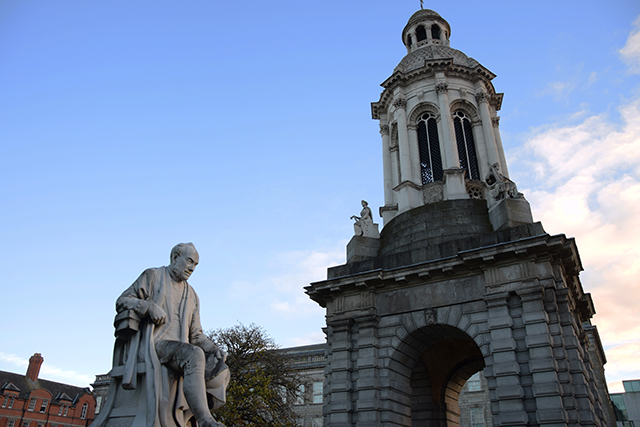Two vacancies listed on the Careers Advisory Service (CAS) website have been found to be fraudulent phishing scams, Trinity News has learned. Mr. N. Sameer, whose name has been changed on request, answered two job advertisements claiming to be with the Azamara Club Cruise Line and the V-Ships Cruise Liner. Sameer received job offers via email from both companies. These emails also contained copies of the relevant job contracts, which asked for personal information including his passport number. A subsequent email appearing to be from the Australian Immigration Office contained a visa form to be filled out by Sameer.
Upon further investigation, both the email addresses that had contacted him were found to be fake and were listed on both scam watchdog websites and on the real websites of both companies as a warning to others. Both websites also specified that the companies in question recruited potential staff through their own recruiting agencies based out of various port cities worldwide. The email from the Australian Immigration Office, and the documentation attached to the email, were also discovered to be forgeries.
Speaking about his discovery of the scam, Mr. Sameer said: “I was obviously happy to have landed two of these jobs. The first was for the position of a retail salesperson and the second, a mechanical engineering technician. I sent the email out to a friend who pointed out that the email addresses sounded fishy. There were grammatical errors, spelling mistakes and even a mistaken nationality which was printed on the contract. Furthermore, there were no interviews done. They directly sent the contract which, after the initial euphoria had died down, I found very strange.”
Speaking to Trinity News, Director of the CAS, Seán O’Gionnáin said: “There are a series of checks that are conducted before a vacancy goes live. The vacancies are usually sent directly to the CAS and are posted by our staff. Prospective employers can post it themselves too.” Among the checks mentioned by O’Gionnáin were checks on the website of the relevant organisation, and scam notifications issued by professional organisations to which the CAS belongs. He confirmed that these checks had been carried out in the case of the advertisements.
In the event of such a scam being reported, according to O’Gionnáin, the issue is thoroughly investigated and the advertisements are taken down. No further advertisements from that organisation are approved following the appearance of a scam job listing.
Speaking about previous such occurrences, O’Gionnáin said: “Scams are quite rare and I can only think of one example previously where we posted a vacancy and shortly afterwards received a notification via AGCAS, a UK careers service, that there was an active scam involved. We took down the vacancy and notified students via Facebook and Twitter but no one from Trinity had applied to this organization.”
O’Gionnáin emphasised the need for vigilance among students when applying to jobs: “It is important that the students also confirm the jobs for their own security. No matter how thoroughly we check there will be the very occasional example of a fraudulent advertisement appearing.”
The CAS website currently lists job vacancies from approximately 450 employers. Official data provided by the CAS claims it lists close to 3,000 vacancies every year.







